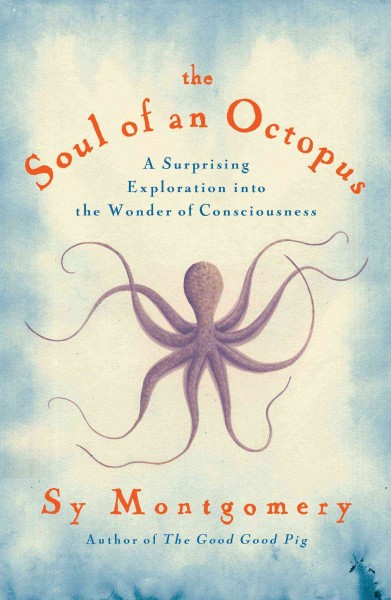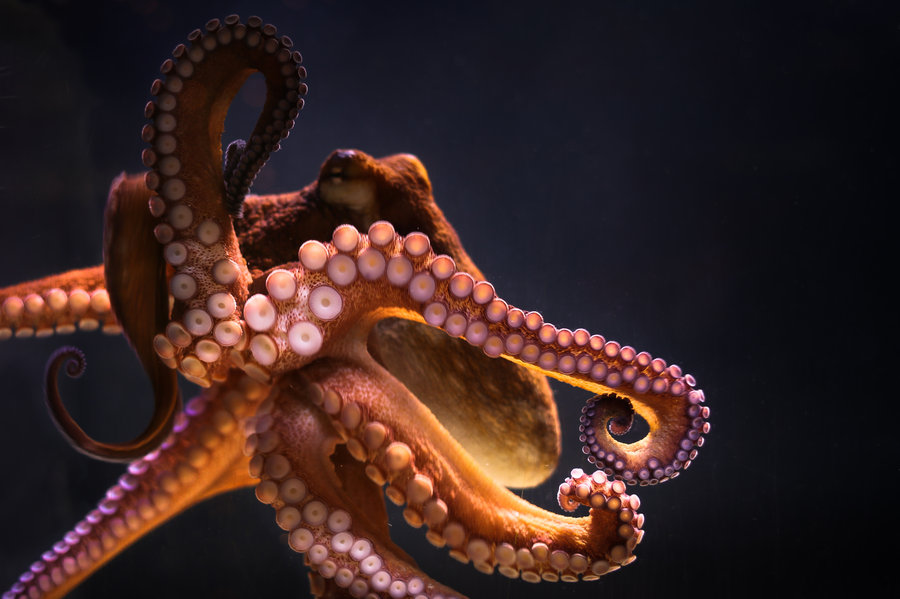My husband is falling asleep across the table from me, in full view of the bar.
In his defense, we have just left a giant party that we attended in order to raise money for The Jackson Free Clinic, an incredible organization for which he regularly busts his ass. He is tired. He took a test today to end a rotation, and “only made a B” [insert my eye rolling here]. Tomorrow he starts a new rotation at the hospital and he is already dreading the all-night shifts, and here I am, at this loud bar, making him drink whiskey and eat fish tacos because I just had to find out why there were so many movie trailers outside, and the only way to be cool about it is to pretend we were already planning on coming here anyway, and “oh, what are these trailers doing here? Filming a movie? How inconvenient!” (It’s a horror movie, by the way, and I am very disappointed that I am not now fast friends with at least one of the Affleck brothers.)
 To top all of this off, I will not shut up about octopuses. You heard me right, I cannot shut my pie hole about the spineless cephalopods crawling around on the ocean floor, and my poor, exhausted husband is trying so hard to pay attention. In his defense, he really does care because he is, after all, a man of science. Circumstances are simply preventing him from giving me his full attention. Why do I have such a wealth of knowledge about the ageless octopus, you ask? It is because I am still coming down from the book high that came from finishing Sy Montgomery’s new masterpiece The Soul of an Octopus: A Surprising Exploration into the Wonder of Consciousness (which was just longlisted for the National Book Award in the nonfiction category).
To top all of this off, I will not shut up about octopuses. You heard me right, I cannot shut my pie hole about the spineless cephalopods crawling around on the ocean floor, and my poor, exhausted husband is trying so hard to pay attention. In his defense, he really does care because he is, after all, a man of science. Circumstances are simply preventing him from giving me his full attention. Why do I have such a wealth of knowledge about the ageless octopus, you ask? It is because I am still coming down from the book high that came from finishing Sy Montgomery’s new masterpiece The Soul of an Octopus: A Surprising Exploration into the Wonder of Consciousness (which was just longlisted for the National Book Award in the nonfiction category).
Montgomery, author of several acclaimed books like The Good Good Pig, brings such a personal element to this book about ancient cephalopods that it is impossible to not be swept away on the journey with her. Early on in the book, Montgomery explains the history in the scientific community of ascribing consciousness to animals. Until recently, scientists have been wary to put too much stock behind attributing specific and complex personalities to animals due to the fear that we would simply project our own human ideas of what consciousness is, and completely misunderstand the science behind why animals do what they do. If an animal like the octopus shows extreme intelligence, it is so tempting to assume that they have the same complex feelings that humans do, and that is a big no no.
So how is it possible to go on an incredibly personal journey when your writing is prefaced with this giant warning about not getting too emotional? Surprisingly (or maybe not surprisingly at all), setting aside our ideas of human consciousness and making room to understand a completely new and alien kind of intelligence is transformative. Montgomery was able to learn to love the octopuses that she came into contact with in a fresh way, a way that made room for an unfathomable, yet nevertheless emotional, bond.
Although it is impossible to completely detach and not project at least some human feelings onto the octopus, several things were made clear to me throughout reading this book. Octopuses are each unique; shy, adventures, solitary, grumpy, or playful. They get itchy. They get bored. Octopuses remember. They seem to take comfort in the presence of an old friend, relaxing and asking to be petted when visited by someone that they like. They forget things in their old age. Their arms contain roughly two thirds of their neurons, meaning that each of the eight arms kind of does have a mind of its own. They taste with their skin, which is how they recognize the humans that they fear/enjoy, and how they hunt the waters around them.
Sy Montgomery fell in love, specifically with two or three of the giant Pacific octopuses housed at the New England Aquarium in Boston. The aquarium is a sprawling, magical complex with exhibits ranging from feisty penguins to grumpy eels, and a webcam fixed in their Giant Ocean Tank, which you can watch here (I have had trouble doing anything else today, especially when Myrtle, the ancient sea turtle who lives in the tank, swims up the camera and rolls around flirtatiously in the water). Montgomery also forged friendships with the volunteers, regular members, and staff that surrounded her, and tenderly peeked into each of their lives, making the book both rich and sad at times. These people bonded over their love of the mysterious octopuses that brought them together, and they left each day mystified and changed.
This nonfiction book about octopuses and the cosmic questions that surround consciousness made me cry. CRY. And I laughed, too, totally in love with how little I know, and at the intoxicating thirst for knowledge that this book gave to me.
It’s hard to explain this strange combination of new facts and the overwhelming feeling of smallness that this book gave to me over drinks while my husband is falling asleep. But don’t worry, I’ve already bookmarked about 100 articles and videos on the miracle that is the octopus, and we’ll be exploring them very soon. To my husband: hope you weren’t planning on reading the Sunday Times this weekend, because I’ve got other plans for us. Time to talk cephalopods.



Comments are closed.